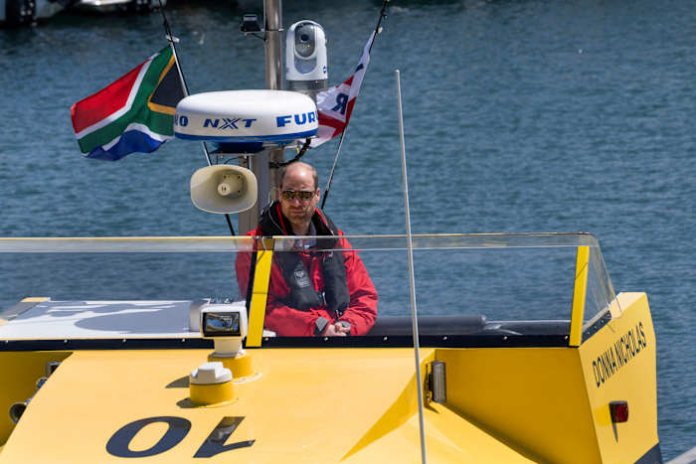SIMON’S TOWN – SIMON’Prince William rode on a sea rescue boat along part of the South African coast on Thursday as he wrapped up a four-day visit to Cape Town dedicated to promoting conservation and the battle against climate change.
William met with volunteers at the National Sea Rescue Institute station in Simon’s Town near Cape Town before boarding the vessel for the short ride to Kalk Bay harbor. Wearing sunglasses and a bright red waterproof jacket, he stood on the top deck of the rescue boat as it pulled away from Simon’s Town, the site of South Africa’s top naval base.
Recommended Videos
William is in South Africa to promote his Earthshot environmental prize, which held its annual awards ceremony in Cape Town on Wednesday night. The prize launched in 2021 and awards $1.2 million in grants to five climate-friendly businesses every year.
The Prince of Wales, who trained as a Royal Air Force helicopter pilot and served in a search and rescue unit during his military career, asked the sea rescue volunteers in Simon’s Town about the training and support they receive.
One volunteer asked the prince if he’d done any rescue work and William replied: “I miss this life. Any chance to get back, I’ll take.”
“It was a wonderful visit,” said National Sea Rescue Institute CEO Mike Vonk, who showed William around NSRI “Station 10” at Simon’s Town and its operations room. “I think with the prince’s background in rescue services, he was really interested in the work we do, the operations we provide around the country, but particularly the opportunity to meet all of the volunteers.”
While William was largely watched by smiling locals who took photos, two protesters, a man and a woman, heckled him from afar in the Kalk Bay harbor and shouted at him to “go home.”
“You have no sovereignty here, you are not our king,” the woman shouted. “Get out of here.”
The protesters did not come close to William and yelled from well behind security barriers. They said they were descended from Indigenous people and were protesting against the legacy of colonialism in South Africa, which was a British colony for more than 150 years until 1961.
William’s father, King Charles III, was confronted by a similar protest on a visit to Australia last month when an Indigenous senator shouted at him “you are not my king.” Australia still recognizes the British monarch as its monarch. South Africa does not and is a republic.
William used his trip to South Africa to draw attention to a wide array of environmental issues, including the work done by conservation rangers, the threat from the illegal wildlife trade, and efforts in Cape Town to protect the Table Mountain National Park and its unique plants that aren’t found anywhere else in the world.
On Thursday, William’s schedule was dedicated to coastal conservation and sustainability, and he disembarked from the rescue boat to meet with a group of local fishermen at Kalk Bay. He learned how they are using new technology to help them fish sustainably and give customers more detailed information on where their seafood comes from, and how it is caught.
William’s wife, Kate, and their three children, Prince George, Princess Charlotte and Prince Louis, did not travel to Cape Town. Kate, Princess of Wales, has only recently returned to some public duties after undergoing chemotherapy for an undisclosed type of cancer.
___
AP Africa news: https://apnews.com/hub/africa



